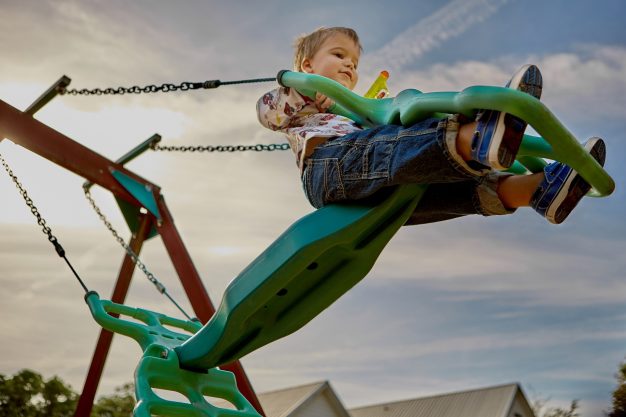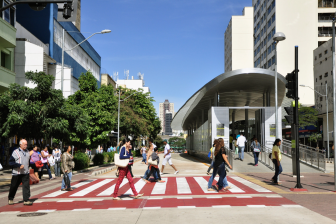
Outdoor playgrounds ‘are the number one place to play’
Free, public playgrounds are the most popular places for children to play in the UK, according to a new survey. In the largest study of play in Britain, the University of Reading found that children spend, on average, more time playing in playgrounds than any other place.
The British Children’s Play Survey, which took place in April last year, involved nearly 1,200 adult respondents with a child aged from 5-11 years. They were asked for their feedback on what life was like before the COVID pandemic restrictions took hold.
Aside from home and in the garden, playgrounds were shown to be the most popular spaces for outdoor play at least once a week, closely followed by green spaces. They were also the third most adventurous place for children’s play.
‘Crucial that children have access to spaces’
Helen Dodd, lead author of the survey, said: “We can see that playgrounds and green areas are critical spaces for children’s play, particularly outdoor, adventurous play. It is therefore crucial that all children have access to spaces like these for their development and wellbeing. Providing the spaces is not enough though, urban planning must take into account how children and families will travel to and access these spaces and they need to be engaging and interesting places for children’s play.”
Mark Hardy, Chair of the Association of Play Industries (API) said that the study ‘confirmed the essential role played by public play areas in children’s health’. He added: “Playgrounds are vital community assets which have a significant impact on children’s health and wellbeing. Recent years have seen a sharp decline in the number of playgrounds. These community spaces are hugely under-funded and hundreds are disappearing. There is now an urgent need for sustained investment in a UK-wide network of playgrounds to protect and enhance children’s health.”
Research by Shrewsbury Town Council also revealed a dramatic rise in the use of public play facilities during the pandemic – notwithstanding the periods when playgrounds were closed – demonstrating how important these assets are to children and local communities.
Experts are calling for a ‘summer of play’
The SLCC, which represents the chief officers to over 5,000 town, parish and community councils, wants the Government to recognise the importance of play in exercise, provide financial support for shared public spaces and long-term legacy funding for parks and playgrounds. Leading academics are also calling for children to be placed at the heart of the nation’s recovery post-pandemic, with experts calling for a ‘summer of play’.
“There has never been a time when playgrounds have been so important,” said Mark Hardy. “They are key in helping children to recover from a year of restrictions which have forced them indoors. The Government’s pledges to ‘Build Back Better’ and ‘Level Up’ must include children, with investment in a sustainable national network of public play spaces before hundreds more are lost for good. For children living in the most disadvantaged areas and those in the 1 in 8 UK households without gardens, playgrounds are their lifeline.”
The API’s recent campaign shows how playgrounds are a unique public service which benefits all children and the substantial role they have in communities:
- For children in the 1 in 8 UK households without gardens, playgrounds are often the only outdoor space in which to play.
- Playgrounds are spaces created just for children – a rare thing in today’s world.
- Playgrounds are a free public service and open to all children.
- Playgrounds are the heart of communities. Just like the local shop, pub or school, playgrounds connect people every day.
- Playgrounds are inclusive. Children from all walks of life and all abilities play there.
- Children play out more when they have a playground nearby.
- Playgrounds help tackle childhood obesity, mental health and sleep problems.
The survey adds weight to a recent parliamentary report, which concluded that investment in the UK’s playgrounds was urgently needed to halt the reverse the alarming decline in their numbers and to safeguard children’s health. The All-Party Parliamentary Group fFit and Healthy Childhood said that outdoor play was now more important than ever, and that the pandemic restrictions on children’s movement had highlighted how essential public playgrounds were for their health and well-being.
The latest government advice for operators managing outdoor play areas, published on 18 May, acknowledges how playgrounds ‘are a valuable community asset, providing important physical, social, emotional and cognitive development opportunities for children who use these spaces for exercise and play’.




